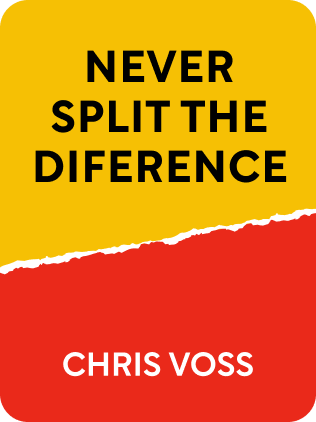

This article is an excerpt from the Shortform book guide to "Never Split the Difference" by Chris Voss and Tahl Raz. Shortform has the world's best summaries and analyses of books you should be reading.
Like this article? Sign up for a free trial here .
What is leverage in the context of negotiation? What types of negotiation leverage are there?
Leverage is the power to inflict loss or withhold gain. There are three types of negotiation leverage: positive, negative, and normative leverage.
Keep reading for more about the three types of negotiation leverage and how to use them to your advantage.
What Is Negotiation Leverage?
In negotiation, leverage is the power that one opponent has to influence the other to move closer to their desired negotiation outcome. A party’s leverage is based on their ability to withhold gains or inflict losses on the other side. There are three types of negotiation leverage: positive, negative, and normative leverage.
Positive Leverage
Positive leverage is the power to give someone something they want. This is when they want something you have. To exercise positive leverage in negotiation, give your counterpart what they want by making them give you something that you want.
Negative Leverage
Negative leverage is the power to inflict harm or take away something that someone else values. It’s inherently based on threats and triggering your counterpart’s sense of loss aversion.
You need to figure out what, in their eyes, would constitute a “loss.” This is not always monetary or tangible. It can be a loss of status, prestige, ego, or reputation.
Use subtle labeling to allude to their fear of loss. For example, if you discover that your counterpart greatly values their reputation as an honest dealer, you would label their behavior by saying, “It doesn’t seem like you care about being seen as straightforward.”
Normative Negotiation Leverage
Normative leverage is when you use someone’s own norms and standards against them. You do this by pointing out the gap between their behavior and their professed principles. Something like, “You say that you value transparency and openness, but it seems like you’re being evasive and indirect with your answers to my questions,” can be a powerful indictment that forces your counterpart to rethink their behavior. No one likes to feel like a hypocrite.
Strategic Umbrage
You can also use emotions as your leverage. This doesn’t mean intimidating your partner into making big concessions and promising more that they can deliver.
Instead, use strategic umbrage. This means being genuinely angry (not faking it), but in control of your emotions. If you get an unworkable offer, saying “I don’t see how that could ever work” in a displeased, but measured tone is a good way to leverage a little bit of anger to your advantage. You’re angry at the offer, not the person.
“I” statements are also effective. They put the other side’s focus on you as a person, which triggers their empathy. “I’m sorry, but that doesn’t work for me,” is a great way to hit the pause button on a bad dynamic.

———End of Preview———
Like what you just read? Read the rest of the world's best book summary and analysis of Chris Voss and Tahl Raz's "Never Split the Difference" at Shortform .
Here's what you'll find in our full Never Split the Difference summary :
- Lessons learned from years as an FBI hostage negotiator
- Why negotiation is about emotional appeals, not rational ones
- The 5 methods for tactical empathy, which gets you what you want by focusing on the other person's feelings






